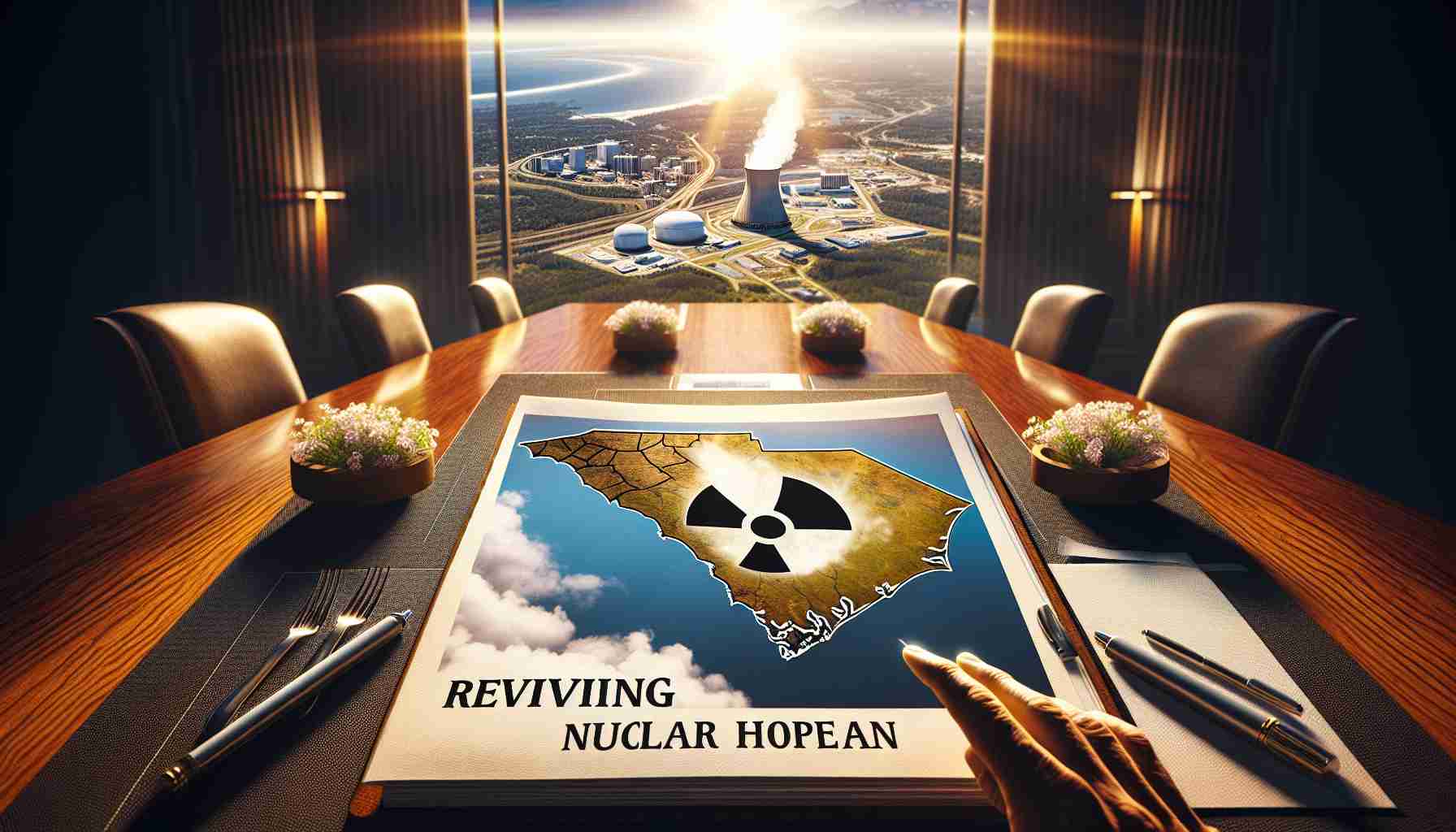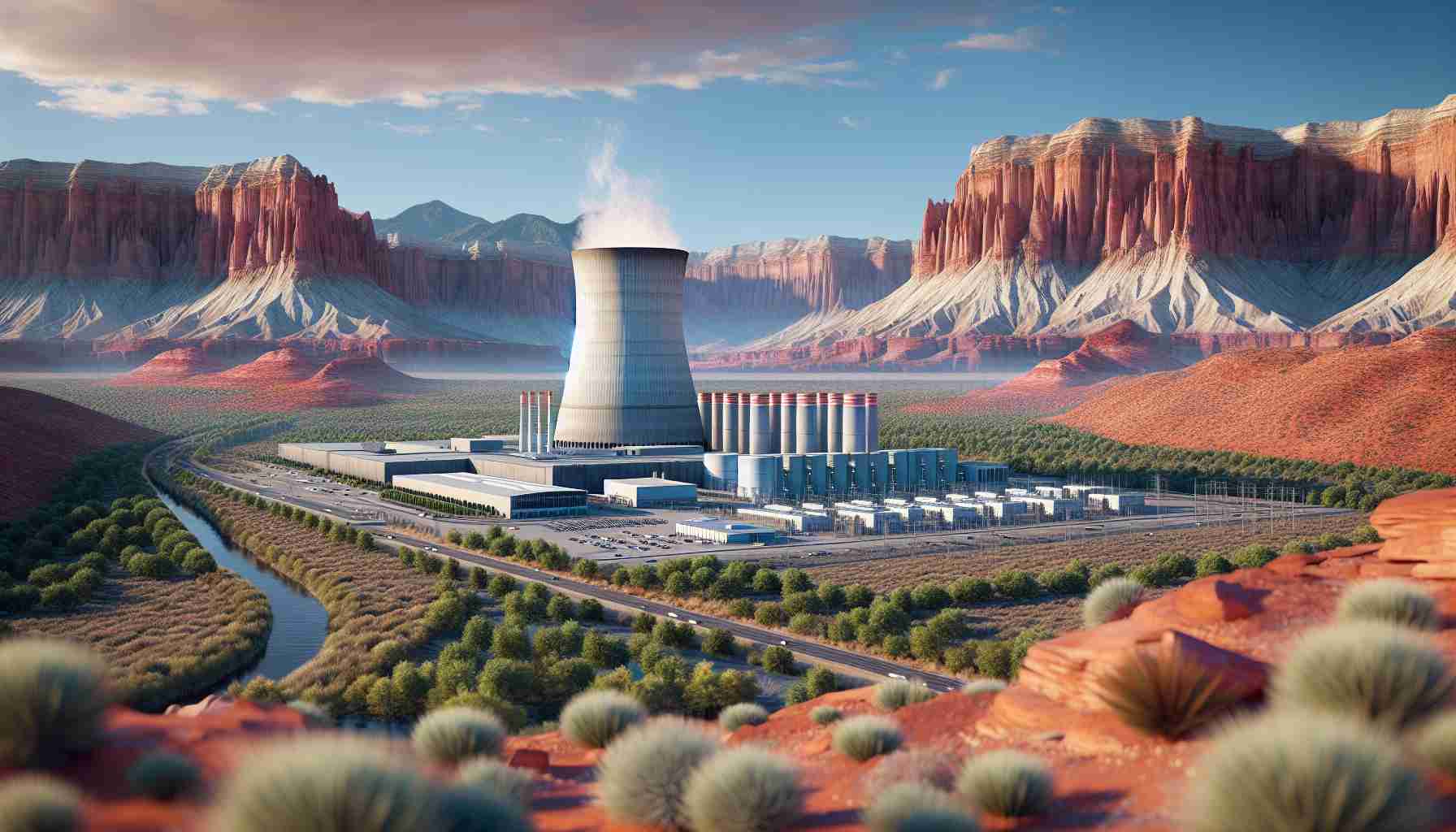A New Era for Nuclear Energy
In a strategic move, Santee Cooper, South Carolina’s largest utility, has initiated a request for proposals (RFP) to attract potential buyers for the unfinished Virgil C. Summer Nuclear Station expansion. The once-promising project, which faced substantial setbacks and was abandoned in 2017, is now seen as a beacon for carbon-free energy generation amid a global push for sustainable power solutions.
On January 22, the utility partnered with investment bank Centerview Partners to seek parties interested in completing the unfinished nuclear units or exploring alternative applications for the site. Interested entities must submit proposals by May 5, 2025.
The strategic shift recognizes the growing interest in nuclear energy, with Santee Cooper’s president noting a surge in demand driven by advanced technologies and zero-carbon initiatives. The completion of the two AP1000 reactors could significantly expedite the delivery of reliable, emissions-free electricity.
The V.C. Summer site, historically significant as part of the U.S. nuclear renaissance, experienced crippling delays and soaring costs, leading to the project’s cessation when just 64% complete. The aftermath of that decision plunged SCANA, its former partner, into turmoil, culminating in its acquisition by Dominion Energy in 2018.
With renewed optimism surrounding nuclear energy amidst the urgency of climate action, Santee Cooper’s endeavor may pave the way for a revival of a project once deemed lost. The future could hold transformative possibilities for the energy landscape of South Carolina and beyond.
Reimagining Nuclear Energy: A Path Forward
The recent developments surrounding the Virgil C. Summer Nuclear Station expansion underscore a pivotal moment not just for South Carolina but for global energy policy at large. As nations grapple with the pressing challenges of climate change and energy security, the renewed focus on nuclear energy might fundamentally reshape societal norms around power generation.
The revival of the V.C. Summer project signals a significant cultural shift towards embracing nuclear energy as a viable, carbon-free alternative amidst rising environmental concerns. With the energy sector being one of the largest contributors to greenhouse gas emissions, integrating advanced nuclear technologies could dramatically alter the emissions landscape. Reports estimate that a nuclear power plant can reduce emissions by up to 4 million tons of CO2 per year compared to coal-fired alternatives. In this light, the completion of the Summer units is not merely a local issue but a potential blueprint for other regions eyeing similar transitions.
Moreover, the global economy could be poised for a shift as nations reassess their energy portfolios. Countries seeking to align with net-zero targets are likely to invest heavily in nuclear technology. International collaborations aimed at nuclear innovation, such as small modular reactors and advanced reactor designs, could facilitate increased foreign investment and technology sharing, ultimately fostering a robust energy economy around sustainable practices.
As we look toward the future, the environmental implications cannot be overlooked. A successful revival of nuclear power generation could catalyze a broader acceptance of nuclear energy, potentially leading to significant advancements in sustainable technology and a diversified energy grid. If the V.C. Summer site is completed, it may serve as a model for future projects, emphasizing the long-term significance of innovative energy solutions in mitigating climate change while ensuring economic stability.
Revitalizing Nuclear Power: Santee Cooper’s Bold Move Towards Sustainable Energy
A New Era for Nuclear Energy
Santee Cooper, South Carolina’s largest utility, is spearheading a transformative initiative by issuing a request for proposals (RFP) to find potential buyers for the unfinished Virgil C. Summer Nuclear Station expansion. Once seen as a groundbreaking venture that encountered significant hurdles and ultimately ceased operations in 2017, the project is now being re-evaluated as a potential cornerstone for carbon-free energy in an era increasingly focused on sustainable power solutions.
# Key Details of the RFP
Set on January 22, Santee Cooper’s collaboration with investment bank Centerview Partners aims to attract proposals for either completing the incomplete nuclear units or considering alternative uses for the site. Interested parties have until May 5, 2025, to submit their proposals, marking a strategic pivot by the utility towards harnessing the power of nuclear energy once again.
# The Growing Demand for Nuclear Energy
The growing interest in nuclear power is underpinned by the urgent demand for zero-carbon energy sources. Advancements in nuclear technologies and the pressing need for reliable emissions-free electricity are driving this resurgence. Santee Cooper’s president highlighted the rising momentum for nuclear energy as a viable solution for meeting South Carolina’s and the nation’s future energy demands.
# Historical Context and Lessons Learned
The V.C. Summer project is a significant part of the U.S. nuclear renaissance narrative. Despite its promising beginnings, the project experienced severe delays and escalating costs, ultimately halting operations when it was only 64% complete. The fallout from this decision sent SCANA, the project’s former partner, into crisis mode, ultimately leading to its acquisition by Dominion Energy in 2018.
# The Future of Nuclear Energy: Insights and Predictions
1. Sustainability Trends: The renewed interest in nuclear energy aligns with global sustainability efforts, as nations aim to reduce reliance on fossil fuels. Nuclear power could play a pivotal role in achieving national and global carbon reduction targets.
2. Technological Innovations: New advancements in nuclear technology, including small modular reactors (SMRs) and improved safety protocols, are enhancing the appeal of nuclear energy as a clean energy source. These innovations could facilitate a smoother operational environment for future projects.
3. Market Analysis: The shifting landscape indicates potential interest from various stakeholders, including private investors and energy developers, who see value in completing the V.C. Summer expansion. With utilities facing pressure to decarbonize, completing the project could unlock substantial economic and environmental benefits.
# Pros and Cons of Resuming Nuclear Projects
– Pros:
– Significant reduction in greenhouse gas emissions.
– Ability to provide consistent and reliable energy to the grid.
– Economic benefits from job creation during construction and operation.
– Cons:
– High initial costs and financial risks associated with nuclear projects.
– Public concerns regarding safety and nuclear waste management.
– Regulatory challenges that may arise during project endorsement and approval.
# Conclusion
Santee Cooper’s initiative signals a potential revival for the Virgil C. Summer project and a broader acceptance of nuclear energy’s role in the clean energy transition. As the push for sustainable energy solutions intensifies, the energy landscape in South Carolina and beyond may be on the cusp of a new era marked by innovative nuclear applications.
For further insights and developments regarding nuclear energy, visit Nuclear Regulatory Commission.
The source of the article is from the blog xn--campiahoy-p6a.es


